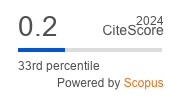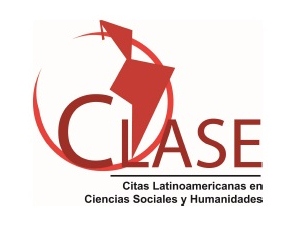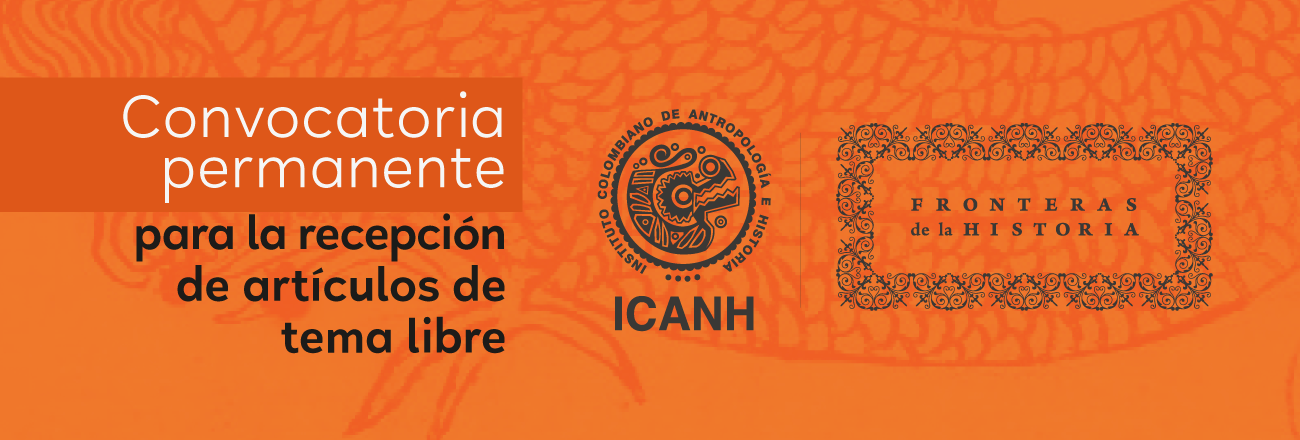Industrias extractivas y desarrollo sostenible en América Latina: ¿oxímoron o nuevo imaginario desarrollista?
Resumen
El objetivo de este artículo es analizar el debate sobre la relación entre industrias extractivas y desarrollo sostenible durante el último ciclo de privatización-nacionalización de la gobernanza de la minería en América Latina (1990-2015) y, en particular, durante el boom minero internacional de 2000-2013 y su reanudación después de 2014. Los dos elementos del estudio (industrias extractivas y desarrollo sostenible) corresponden en realidad a la gran minería y el crecimiento económico “verde”. En la nueva coyuntura bajista de los precios del último lustro de la década de 2010, las industrias extractivas están tratando de rehabilitarse como apoyatura de la Agenda 2030 de Naciones Unidas y como un factor relevante en la recuperación del crecimiento económico menos intensivo en carbono, especialmente tras el efecto demoledor de la pandemia de COVD-19. La hipótesis de trabajo es que, pese a los esfuerzos por mejorar la reputación del sector realizados desde finales del siglo XX, la relación entre las industrias extractivas y el desarrollo sostenible resulta cada vez más problemática, por cuanto la gran minería (y el proceso de sustitución interna desde los combustibles fósiles hacia los minerales metálicos que precisará la transición energética) afecta significativamente al capital natural que no puede ser sustituido, contribuyendo así a traspasar varios límites planetarios.
Descargas
Citas
Adams, D. et al. (2019): “Globalisation, governance, accountability and the natural resource «curse»: Implications for socio-economic growth of oil-rich developing countries”, Resources Policy, 61, pp. 128-140.
Addison, T. y Roe, A. (2018): “Extractives for Development. Introduction and Ten Main Messages”, en T. Addison y A. Roe eds., Extractive Industries. The Management of Resources as a Driver of Sustainable Development, Oxford, Oxford University Press, pp. 3-28.
Akbulut, B. et al. (2019): “Who promotes sustainability? Five theses on the relationships between the degrowth and the environmental justice movements”, Ecological Economics, 165, pp. 1-9.
Arbatli, E. (2018): “Resource nationalism revisited: A new conceptualization in light of changing actors and strategies in the oil industry”, Energy Research and Social Science, 40, pp. 101-108.
Arellano, J. (2011): ¿Minería sin fronteras? Conflicto y desarrollo en regiones mineras de Perú, Liman, Instituto de Estudios Peruanos.
Arsel, M., Hogenboom, B. y Pellegrini, L. (2016): “The extractive imperative in Latin America”, The Extractive Industries and Society, 3 (3), pp. 380-387.
Azqueta, D. y Sotelsek, D. (2019): “Recursos minerales: capacidad de carga y desarrollo sostenible”, en R.J. Sánchez, ed., La bonanza de los recursos naturales para el desarrollo. Dilemas de gobernanza, Santiago de Chile, CEPAL, pp. 29-57.
Auty, R.M. (1993): Sustaining Development in Mineral Economies: The Resource Curse Thesis, Londres, Routledge.
Ballón, E. et al. (2017): Minería y marcos institucionales en la región andina. El superciclo y su legado, o las difíciles relaciones entre políticas de promoción de la inversión minero-hidrocarburífera y las reformas institucionales, Lima, Natural Resource Governance Insitute.
Ballón, E. et al. (2018): La Agenda de la Sociedad Civil frente a las Industrias Extractivas en América Latina, Lima, Natural Resources Governance Institute.
Banoub, D. (2017): “Natural Resources”, en D. Richardson et al. eds., The International Encyclopedia of Geography. People, the Earth, Environment, and Technology, John Wiley & Sons, DOI: 10.1002/9781118786352.wbieg0496.
Barbier, E.B. y Burguess, J.C. (2017): “Natural Resources Economics, Planetary Boundaries and Strong Sustainability”, Sustainability, 9 (10) 1858, pp. 1-13.
Bárcena, A. (2018). “Estado de situación de la minería en América Latina y el Caribe: desafíos y oportunidades para un desarrollo más sostenible”, IX Conferencia de Ministerios de Minería de las Américas, Lima, Disponible en web: https://www.cepal.org/sites/default/files/presentation/files/181116_extendidafinalconferencia_a_los_ministros_mineria_lima.pdf.
Bastida, A.E. (2018): “Latin America’s Policy Priorities on Mining and Sustainable Development, and Opportunities for EU Cooperation”, STRADE European Policy Brief, julio.
Batterham, R. (2014): “Lessons in sustainability from the mining industry”, Procedia Engineering, 83, pp. 8-15.
Bebbington, A. et al. (2008): “Contention and Ambiguity: Mining and the Possibilities of Development”, Development and Change, 39 (6), pp. 887-914.
Bebbington, A. et al. (2019): Gobernanza de las industrias extractivas. Política, historia, ideas, Lima, Fondo Editorial Universidad del Pacífico.
Bevir, M. (2007): “Governance”, en M. Bevir, ed., Encyclopedia of Governance, Thousand Oaks, SAGE, vol. I, pp. 364-383.
Bosson. R. y Varon, B. (1978): The Mining Industry and the Developing Countries, Oxford, Oxford University Press.
Boutilier, R.G. (2014): “Frequently asked questions about the social licence to operate”, Impact Assessment and Project Appraisal, 32 (4), pp. 263-272.
Boutilier, R.G. y Thomson, I. (2018): “Social License to Operate”, en D.C. Poff y A.C. Michalos (eds.), Encyclopedia of Business and Professional Ethics, Springer International Publushing, https://doi.org/10.1007/978-3-319-23514-1_127-1.
Brand, U., Görg, C. y Wissen, U. (2020): “Overcoming neoliberal globalization: social-ecological transformation from a Polanyian perspective and beyond”, Globalizations, 17 (1), pp. 161-176.
Brown, S. (2020). “Foreing aid, the mining sector and democratica ownership: The case of Canadian assistance to Peru”, Development Policy Review, 38 (1), pp. 13-31.
Brown, K.W. (2012): A History of Mining in Latin America. From the Colonial Era to the Present, Alburquerque, University of New Mexico Press.
Bruckmann, M. (2011): Recursos naturales y la Geopolítica de la Integración Sudamericana, Mountain View, Creative Commons.
Buxton, A. (2012): “MMSD+10: Reflecting on a decade of mining and sustainable development”, IIED Sustainable Markets Discussion Paper.
Careddu, N. et al. (2018): “Raw materials associated with extractive industry: An overview”, Resources Policy, 59, pp. 1-6.
Carvalho, F.P. (2017): “Mining industry and sustainable development: time for change”, Food and Energy Security, 6 (2), pp. 61-77.
Cisneros, Paul (2020): “A Comparative Study of the Introduction of Restrictions to Large‐Scale Mining in Four Latin American Countries”, Review of Policy Research, 37 (5), pp. 687-712.
Cooney, J. (2017): “Reflections on the 20th anniversary of the term «social licence»”, Journal of Energy & Natural Resources Law, 35 (29), pp. 197-200.
Coumans, C. (2017): “Do no harm? Mining industry responses to the responsibility to respect human rights”, Canadian Journal of Development Studies, 38 (2), pp. 272-290.
Dávalos, P. (2012): La democracia disciplinaria. El Proyecto posneoliberal para América Latina,
Davis, G.H. (1995): “Learning to Love the Dutch Disease: Evidence from the Mineral Economies. World Development, 23 (10), pp. 1765-1779.
De la Puente, L. y Ballón, E. (2019): La gobernanza centralizada de la minería, el gas y el petróleo en los países andinos: ¿Oportunidades de transformación?, Lima, Natural Resource Governance Institute.
De Sa, P. (2019): “Mining and sustainable development: territorializing the mining industry”, Mineral Economics, 32 (2), pp. 131-143.
Deutsch, L., Folke, C. y Skanberg, K. (2003): “The critical natural capital of ecosystem performance as insurance for human well-being”, Ecological Economics, 44 (2/3), pp. 205-217.
Dietsche, E. (2018): “Political Economy and Governance”, en T. Addison y A. Roe eds., Extractive Industries. The Management of Resources as a Driver of Sustainable Development, Oxford, Oxford University Press, pp. 114-136.
Dobra, J., Dobra, M. y Ouedraogo, A. (2018): “Does mineral development provide a basis for sustainable economic development?”, Resources Policy, 58, pp. 71-76.
Domínguez, R. (2018): “Cambiando el marco interpretativo de la cooperación. Desigualdades internacionales y desarrollo insostenible”, en P. Mochi y C. Girardo coords., Otros desarrollos, otra cooperación. Retos y perspectivas de la Cooperación Internacional ante la diversidad de los esquemas de desarrollo, Cuernavaca, Centro Regional de Investigaciones Multidisciplinarias de la UNAM, pp. 57-80.
Domínguez, R. (2021): “El extractivismo y sus despliegues conceptuales”, Revista Territorios y Regionalismos, 4 (4), pp. 1-26.
Domínguez, R. et al. (2019); Recursos naturales, medio ambiente y sostenibilidad. 70 años de pensamiento de la CEPAL, Santiago de Chile: CEPAL.
Dore, E. (1994): “Una interpretación socio-ecológica de la historia minera latinoamericana”, Ecología Política. Cuadernos de debate interncional, 7, pp. 49-68.
Dunford, M. (2020): “Chinese and Development Assistance Committee (DAC) development cooperation and development finance: implications for the BRI and international governance”, Eurasian Geography and Economics, 61 (2), pp. 125-136.
Durand, F. (2015): Poder político y gobierno minero, Lima, CooperAcción-Acción Solidaria para el Desarrollo
Durand, F. (2016): Cuando el poder extractivo captura El Estado. Lobbies, puertas giratorias y paquetazo ambiental en Perú. Lima, Oxfam.
Ekins, P. et al. (2003): “A framework for the practical application of the concepts of critical natural capital and strong sustainability”, Ecological Economics, 44 ( 2/3), pp. 165-185.
Ellis, R.E (2018): “Hacia una asociación estratégica: Las inversiones de China en América Latina”, Working Paper Series REDCAEM, 3, marzo.
Farley, J. (2012): “Ecosystem services: the economics debate”, Ecosystem Services, 1 (1), pp. 40-49.
Faundez, J. (2017): “The governance of natural resources in Latin America: The commodities consensus and the policy space conundrum”, en C. Tan y J. Faundez eds., Natural Resources and Sustainable Development. International Economic Law Perspectives, Cheltenham, Edward Elgar, pp. 117-141.
Fletcher, R. y Rammelt, C. (2017). “Decoupling: A Key Fantasy of the Post-2015 Sustainable Development Agenda”, Globalizations, 14 (7): 450-467.
Frederiksen, T. (2018): “Corporate social responsibility, risk and development in the mining industry”, Resources Policy, 59, pp. 495-505.
Frederiksen, T. y Himley, M. (2020): “Tactics of dispossession: Access, power, and subjectivity at the extractive frontier”, Transactions of the Institute of British Geographers, 45 (1), pp. 50-64.
Fukuyama, F. (2013): “What is Governance”, Governance: An International Journal of Policy, Administration and Institutions, 26 (3), pp. 347-368.
Gamu, J., Le Billon, P. y Spiegel, S. (2015): “Extractive industries and poverty: A review of recent findings and linkage mechanisms”, The Extractive Industries and Society, 2 (1), pp. 162-176.
Garibay, (2018): “The global mining cluster and decoding sustainable mining”, Journal of Historical Archeology & Anthropological Sciences, 3 (1), pp. 124-135.
Garzón, V.A. y Röesch, M. (2019): “Avances y retos en iniciativas y políticas de transparencia y rendición de cuentas en las industrias extractivas”, en R.J. Sánchez, ed., La bonanza de los recursos naturales para el desarrollo. Dilemas de gobernanza, Santiago de Chile, CEPAL, págs. 277-294.
Gibbs, E. (2017): “Ecological modernization”, en D. Richardson et al. eds., The International Encyclopedia of Geography. People, the Earth, Environment, and Technology, John Wiley & Sons, DOI: 10.1002/9781118786352.wbieg 0434.
Gibson, J. y Bradshaw, B. (2018): “Resource Extraction and Indigenous Community Consent”, en D.C. Poff y A.C. Michalos eds., Encyclopedia of Business and Professional Ethics, Springer International Publushing. Disponible en web: https://doi.org/10.1007/978-3-319-23514-1_128-2.
Goodland, R. (2012): “Responsible Mining: The Key to Profitable Resource Development”. Sustainability, 4 (9), pp. 2099-2126
Gorenstein, S. y Ortiz, R. (2018): “Natural resources and primary sector-dependent territories in Latin America”, Area Development and Policy, 3 (1), pp. 42-59.
Graulau, J. (2008): “«Is mining good for development?»: the intellectual history of an unsettled question”, Progress in Development Studies, 8 (2), pp. 129-162.
Griffith-Jones, S. y Sunkel, O. (1986): Debt and Development Crisis in Latin America. The End of an Illusion, Oxford, Clarendon Press.
Gudynas, E. (2015): Extractivismos. Ecología, economía y política de un modo de entender el desarrollo y la Naturaleza. Cochabamba, CEDIB.
Gudynas, E. (2018a): “Extractivisms. Tendencies and consequences”. En R. Munck y R. Delgado Wise eds., Reframing Latin American Development. Nueva York: Routledge, pp. 61-71.
Gudynas, E. (2018b): “Extractivismos: el concepto, sus expresiones y sus múltiples violencias”. Papeles de relaciones ecosociales y cambio global, 143, pp. 61-70.
Gudynas, E. (2019): “Development and Nature. Modes of appropriation and Latin American extractivisms”, en J. Cupples, M. Palomino-Schalscha y M. Prieto eds., The Routledge Handbook of Latin American Development, Londres, Routledge, pp. 389-399.
Haddow, K.H. (2014): “How best can mining be a catalyst for diversifying economies?”, Mineral Economics, 27 (2/3), pp. 149-151.
Haslam, P.A. y Heidrich, P. (2016): “From neoliberalism to resource nationalism: states, firms and development”, en P.A. Haslam y P. Heidrich eds., The Political Economy of Natural Resources and Development. From neoliberalism to resource nationalism, Nueva York, Routledge, pp. 1-32.
Hickel, J. y Kallis, G. (2020): “Is Green Growth Possible?”, New Political Economy, 25 (4), pp. 469-485.
Hund, K. et al. (2020). Minerals for Climate Action: The Mineral Intensity of the Clean Energy Transition, Washington, The World Bank.
ICMM (2015): Los pueblos indígenas y la minería. Guía de buenas prácticas. Segunda edición, Londres, ICMM.
Infante-Amate, J. Urrego, A. y Tello, E. (2020). Las venas abiertas de América Latina en la era del Antropoceno: un estudio biofísico del comercio exterior (1900-2016). Diálogos. Revista Electrónica de Historia, 21 (2), pp. 177-214.
Kallis, G y Sager, J. (2017): “Oil and the economy: A systematic review of the literature for ecological economists”, Ecological Economics, 131, pp. 561-571.
Kaufmann, D. (2017): Índice de la Gobernanza de los Recursos Naturales, Lima, Natural Resource Governance Institute.
Kemp, D. y Owen, J.R. (2013): “Community relations and mining: Core to business but not «core business»”, Resources Policy, 38 (4), pp. 523-531.
Koch, N. y Perreault, T. (2019): “Resource nationalism”, Progress in Human Geography, 43 (4), pp. 611-631.
Kretzschmar, G.L., Kirchner, A. y Sharifzyanova, L. (2010): “Resource Nationalism. Limits to Foreign Direct Investment”, The Energy Journal, 31 (2), pp. 27-52.
Krueger, R. (2017): “Sustainable development”, en D. Richardson et al. eds., The International Encyclopedia of Geography. People, the Earth, Environment, and Technology, John Wiley & Sons, DOI: 10.1002/9781118786352.wbieg0856.
Lambert, I.B. (2001): “Mining and sustainable development: considerations for minerals supply”, Natural Resources Forum, 25 (4), pp. 275-284.
Lehr, A.K. (2014): “Los derechos de los pueblos indígenas y la función del consentimiento libre, previo e informado”. Disponible en web: https://pactoglobal.cl/wp-content/uploads/2019/08/FPIC_Indigenous_Peoples_GPN_ES.pdf.
Lewis, B. et al. (2016): Cartografía de la minería en relación con los Objetivos de Desarrollo Sostenible: un atlas, Ginebra, Foro Económico Mundial.
Lin, J. Y. y Wang, Y. (2017): Going Beyond Aid, Development, Cooperation for Structural Transformation, Cambridge, Cambridge Press University.
López, E. y Vértiz, F. (2015): “Extractivism, Tansnational Capital, and Subaltern Struggles in Latin America”, Latin American Perspectives, 42 (5), pp. 152-168.
Machado, H. (2015): “Crítica de la razón progresista. Una mirada marxista sobre el extractivismo/ colonialismo del siglo XXI”, Aktuel Marx Intervenciones, 19, pp. 137-173.
Mahnkopf, B. (2019): “Geopolítica en el Capitaloceno”, Papeles de relaciones ecolosociales y cambio global, 146, pp. 35-45.
Manzano, O. (2015): El rol de los recursos naturales en el comercio internacional y el desarrollo, Washington, Banco Interamericano de Desarrollo.
Menzie, W.D., Singer, D.A. y DeYougn, J.H. (2005): “Mineral Resources and Consumption in the Twenty-First Century”, en R.D. Simpson, M.A. Thomas y R.U. Aytres, eds., Scarcity and Grovvth Revisited, Natural Resources and the Environment in the New Millennium, Washington, Resources for the Future, pp. 33-53.
Mihalyi, D., Adam, A. y Hwang, J. (2020). Resource-Backed Loans:Pitfalls and Potential, Washington, Natural Resource Governance Institute.
Mkandawire, T. (2007): “«Good governance»: the itinerary of an idea”, Development in Practice, 17 (4/5), pp. 679-681.
OXFAM (2015): “Índice de consentimiento de las comunidades 2015. Posturas públicas de empresas de petróleo, gas y minería sobre el consentimiento libre, previo e informado”, Informe Oxfam, 207.
Palacios, J.L. et al. (2018): “Exergoecology Assesment of Mineral Exports from Latin America: Beyond a Tonnage Perspective”, Sustainability, 10 (3), 723, pp. 1-18.
Palma, J.G. (2012): “How the full opening of the capital account to highly liquid financial markets led Latin America to two and a half cycles of «mania, panic and crash»”, Cambridge Working Papers in Economics (CWPE), 1201.
Parra, C. y Weldegiorgis, F. (2015): “Mining development and opportunities for poverty reduction and human development in Latin America”, Disponible en web: https://papers.ssrn.com.
Pearce, D. y Atkinson, A. (1993): “Capital theory and the measurement of sustainable development: an indicator of ‘weak’ sustainability”, Ecological Economics, 8 (2), pp. 103-108.
Pearce, D.W. y Turner, R.K. (1990): Economics of Natural Resources and the Environment, Londres, Harvester Wheatsheaf.
Pérez-Rincón, M. Vargas-Morales, J. y Martínez-Alier, J. (2019): “Mapping and Analyzing Ecological Distribution Conflicts in Andean Countries”, Ecological Economics, 157, pp. 80-91.
Petras, J. y Veltmeyer, H. (2014): Extractive Imperialism in the Americas. Capitalism’s New Frontier, Leyden y Boston, Brill.
Rivera-Basques, L. Duarte, R. y Sánchez-Chóliz, J. (2021): “Unequal ecological exchange in the era of global value chains: The case of Latin America”, Ecological Economics, 180, doi.org/10.1016/j.ecolecon.2020.106881.
Responsible Mining Foundation (2018): “Responsible Mining Index 2018”. Disponible en web: https://2018.responsibleminingindex.org/en.
Rodríguez, I. et al. (2019): “Conflictividad socioambiental en América Latina. Aportes de las transformación de conflictos socioambientales a la transformación ecológica”, Cuadernos de la Transformación, 3.
Rodríguez-Becerra, M. y Espinoza, G. (2002): Gestión ambiental en América Latina y el Caribe: evolución, tendencias y principales prácticas, Washington, BID.
Scheidel, A. et al. (2018): “Ecological distribution conflicts as forces for sustainability: an overview and conceptual framework”, Sustainability Science, 13 (3), pp. 585-598.
Sethi, P., Martell y Demir (2016): “Building Corporate Reputation Through Corporate Social Responsibility (CSR) Reports: The Case of Extractive Industries”, Corporate Reputation Review, 19 (3), pp. 219-243.
Shi, H. (2012): “Mine Green Mining”, Energy Procedia, 16 (parte A), pp. 409-416.
Slack, K. (2012): “Mission impossible?: Adopting a CSR-based business model for extractive industries in developing countries”, Resources Policy, 37, pp. 179-184.
Svampa, M. (2013): “Consenso de los Commodities y lenguajes de valoración en América Latina” Nueva Sociedad, 244, pp. 30-46.
Svampa, M. (2019): Las fronteras del neoextractivismo en América Latina. Conflictos socioambientales, giro ecoterritorial y nuevas dependencias. Buenos Aires, UNSAM.
Söderholm, P., y Svahn, N. (2015): “Mining, regional development and benefit-sharing in developed countries”, Resource Policy, 45, pp. 78-91.
Sunkel, O. (1981): La dimensión ambiental en los estilos de desarrollo de América Latina, Santiago de Chile, CEPAL/PNUMA.
Sunkel, O. y Paz, P. (1970): El subdesarrollo latinoamericano y la teoría del desarrollo, Ciudad de México, Siglo XXI.
UNGC/KPGM (2017): SGD Industry Matrix. Energy, Natural Resource & Chemicals. Disponible en web: https://home.kpmg/content/dam/kpmg/xx/pdf/2017/05/sdg-energy.pdf
UNEP (2019): Mineral resource governance in the 21st century. Gearing extractive industries towards sustainable development, París, UNEP.
Veltmeyer, H. (2013): “The Political Economy of Natural Resource Extraction: A New Model or Extractive Imperialism”, Canadian Journal of Development Studies, 34 (1), pp. 85-92.
Victor, P. (1991): “Indicators of sustainable development: some lessons from capital theory”, Ecological Economics, 4 (3), pp. 191-213.
Viscidi, L. y Graham, N. (2020): “Combatiendo el cambio climático con los ingresos de las industrias extractivas. Estudio de casos de Colombia y Perú e implicaciones para América Latina”, The Dialogue Documento de Trabajo, diciembre.
Vos, M. y Greenspan, E. (2012): “Community Consent Index. Oil, Gas and Mining Company Public Positions on Free, Prior, and Informed Consent (FPIC)”, Oxfam America Research Backgrounders.
World Bank (1996): “A Mining Strategy for Latin America and the Caribbean”, World Bank Technical Paper, 345.
World Bank (2003): Race to the Top. Attracting and Enabling Global Sustainable Business. Business Survey Report, Washington, The World Bank Group.
World Bank (2004): Striking a better balance. The World Bank Group and Extractive Industries: The Final Report of the Extractive Industries Review, Washington, The World Bank.
World Bank (2017): The Growing Role of Minerals and Metals for a Low Carbon Future, Washington, The World Bank
World Bank/IFC (2002): Treasure or Trouble? Mining in Developing Countries, Washington, International Finance Corporation.
Wright, G. y Czelusta, J. (2004): “Why economies slow: The Myth of the Resource Curse”, Challenge, 47 (2), pp. 6–38.
Xue, M. (2020): “US-China Competition in International Development Assistance”, Contemporary International Relations, 30 (4), pp. 109-117.
Zibechi, R. (2017), “Extractive Capitalism and Subterranean Resistances”, en H. Veltmeyer y P. Bowles, eds., The Essential Guide to Critical Development Studies, Londres y Nueva York, Routledge, pp. 360-370.
Derechos de autor 2021 Rafael Domínguez Martín

Esta obra está bajo licencia internacional Creative Commons Reconocimiento-NoComercial-CompartirIgual 4.0.

Esta obra está bajo licencia internacional Creative Commons Reconocimiento-NoComercial-CompartirIgual 4.0.









_18.09_.00_1.png)




















